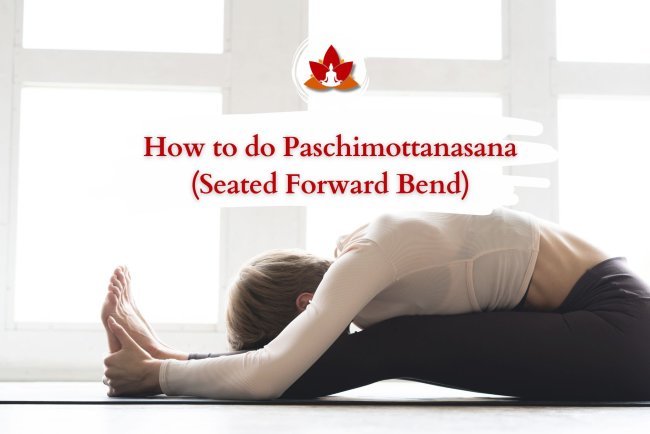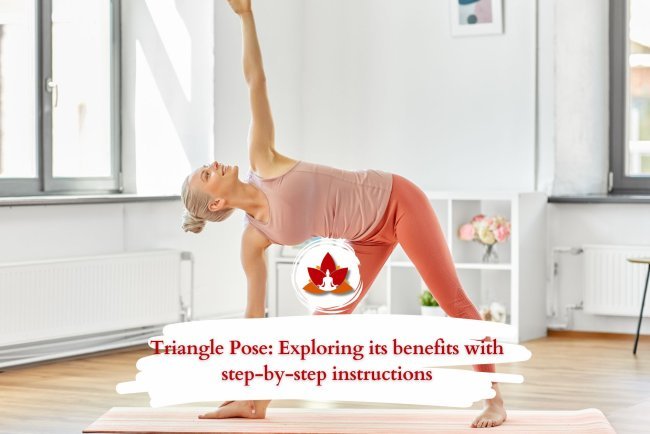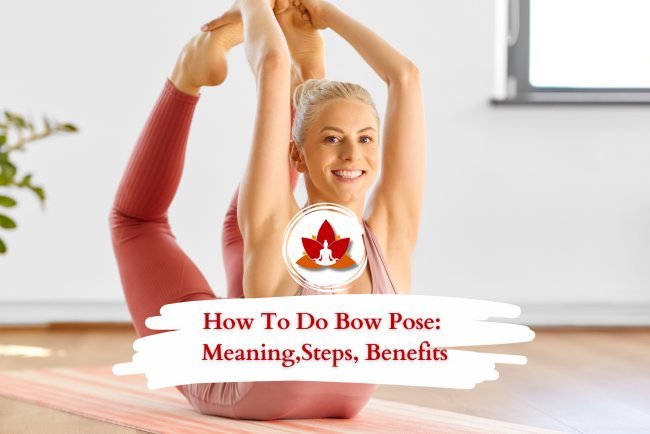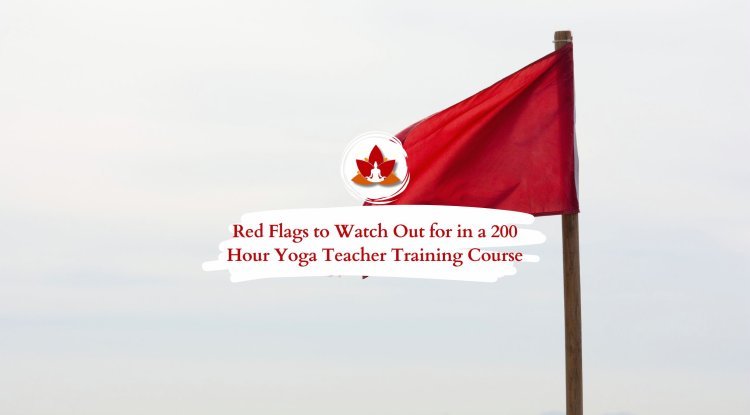10 Yoga Poses For Anxiety Relief

Do you always feel the pangs of fatigue taking over you? Do you struggle to sleep or concentrate throughout your day? These could be symptoms of untreated anxiety creeping up into your daily life. You might be surprised to know that anxiety is more common than you think. Studies are estimating up to 30% of adults actually experience anxiety in its most serious form at some point in their lives.
To preserve calm and be grounded might be very hard in this fast-moving world. Further unmanaged, anxiety will build up and affect your functioning daily, both at work and relationally. While yoga is not an antidote for anxiety, it can be a really helpful tool in keeping the symptoms of anxiety at bay. Now, relief from anxiety and stress can be just a simple step away!
Anxiety and Its Consequences: Analyzing the Disorder
Stress, fear, and anxiety are feelings we all have had at some or other time in our lives—be it waiting for an exam result, waiting for our first date, or before a job interview. A little bit of fear is normal and keeps us on the path of discipline and focus. When the fear becomes persistent and interferes with normal life, then it may develop into an anxiety disorder. Such a state of excessive uneasiness, worry, or fear of the unknown demands attention and treatment.
Anxiety disorders affect over 40 million adults in the U.S. within a given year. However, only about 40% of the affected individuals receive treatment. Anxiety is treatable, and yoga can help play a supporting role by soothing an overactive nervous system and relaxing the mind and body.
Symptoms of Anxiety Disorders:
Anxiety disorders may manifest themselves in both mental and physical ways. If you experience the following, then you may want to check yourself for an anxiety disorder:
-
Feelings of Panic and Anxiety: You may have an anxiety disorder if you frequently experience unusual feelings of panic, fear, or unease when there is no apparent reason.
-
Intrusive, Obsessive Thoughts: Do you dwell on past traumatic experiences? If they are not kept under check, obsessive thoughts are one of the most common symptoms of anxiety.
-
Nightmares: If you feel you're waking up from more nightmares than usual, then this may well have a relationship with some sort or another of underlying anxiety.
-
Compulsive Behaviors: Do you find yourself washing your hands over and over again or perhaps engaging in some other form of compulsive behavior? This could be part of how your anxiety is coming out.
-
Sleep Disturbances: Difficulty falling asleep may be due to rest and relaxation being disrupted by anxiety.
-
Excessive Sweating: Do you find your hands and feet constantly sweating for no apparent reason—not because of exercise or high temperatures, perhaps? Anxiety might be a cause of this excessive sweating, more so in highly stressful situations.
-
Heart Palpitations: Frequent palpitations or a racing heartbeat could be the physical signs that mark anxiety.
How Yoga Can Help
Research studies across all these years have indicated that yoga helps in reducing stress and anxiety by soothing the nervous system. Yoga will make a person feel centered, focussed, and empowered to face life's challenges.
How Yoga Poses Stimulate Vagus Nerve
Yoga poses stimulate the vagus nerve, which is essential for the activation of the parasympathetic nervous system. Yoga plays a vital role in the part of our body that calms us and makes us feel safe.
Knowing our internal body sensations through interoception, yoga helps in differentiating what feels safe from what feels stressful. This heightened awareness could provide a more efficient way of managing stress. It is a fact that anxiety symptoms can be reduced by increasing vagal tone. Therefore, the higher your vagal tone, the more rapidly your body will be able to relax from stress.
There are many opportunities in yoga to increase interoception and stimulate the vagus nerve. That is, with mindful movement, one becomes more conscious about which muscles contract, stretch, or relax, hence being linked more to the body and promoting general well-being.
Here are 9 yoga tips that can help you fight anxiety:
-
Practice Yoga Asanas to Release Stress
Practice yoga postures regularly to release the physical energy and, through that, calm the mind. These postures will decrease stress hormones in your system and increase feelings of relaxation and well-being.
-
Practice and perfect the art of Pranayama to help with anxiety
Breathing techniques, such as Pranayama, can help immensely in controlling anxiety. One is able to quiet the nervous system by concentrating on the breath while meditating, thereby easing out the mind and dispelling any type of anxious thoughts.
-
Meditate for a Peaceful Mind
Regular meditation helps to gain the deep state of relaxation, silencing the mind and reducing anxiety. Meditate daily to receive its continuing benefits in the form of a calm and centered mind.
-
Embrace Yoga Philosophy for a Happier Life
Bring the philosophies of yoga into life, and you will be surprised that this contributes towards enhanced happiness and contentment. Living in the here and now, valuing the present, dispels anxiousness and allows one to live life to the fullest.
-
Surround Yourself with Positive Company
Who you associate with makes all the difference when it comes to your psychological well-being. Continue always to have positive and supportive friends who bring good energy into your life and help keep you grounded.
-
Reflect on Past Triumphs Over Anxiety.
Draw on prior experiences where you have overcome anxiety. This often may empower you and give you confidence that you will be able to deal with current difficulties with equal strength.
-
Focus on Acts of Kindness
Turning your attention to doing something for someone else often is a surefire way to reduce anxiety levels. It does so by turning your attention away from your own anxieties to what you can do for another.
-
Develop Faith and Keep Smiling
Keep positive by praying and having faith. Laugh often, as a good attitude has the power to overcome anxiety. One will be surprised at how peace and calmness begin to seep into one's mind.
-
Remember That Everything is Temporary
It can comfort a person with anxiety if they remember that everything has to end. Comprehending this transitory nature of life's challenges can give a person solace in times of stress.
1. Reduce Stress through Yoga: Asanas for a Happy and Healthy Mind and Body
Practicing yoga asanas can prove to be a potent way of reducing stress and hence maintaining your overall well being. The postures not only ease tension from the system but also wash out all negativity, ultimately resulting in a serene mind and healthier body. Include in your daily routine the following asanas :
-
Dhanurasana (Bow Pose)
-
Matsyasana (Fish Pose)
-
Janu Shirsasana (One-Legged Forward Bend)
-
Setu Bandhasana (Bridge Pose)
-
Marjariasana (Cat Stretch)
-
Paschimottanasana (Two-Legged Forward Bend)
-
Hastapadasana (Standing Forward Bend)
-
Adho Mukha Svanasana (Downward-Facing Dog)
-
Sirsasana (Headstand)
-
Shavasana (Corpse Pose)
Pro Tip: Practice Yoga Nidra at the end of your yoga session to truly unwind. The practice detoxifies the body of its toxins and relieves it from stress, thus allowing mental clarity.
2. Breathe Away Anxiety with Pranayama Techniques
Breathing happens to be an important factor when it comes to keeping anxiety at bay. The art of breathing or Pranayama can clear up your mind of all clutter and bring in calmness. Practice the following breathing techniques to keep away anxiety.
-
Kapalbhati Pranayama (Skull-Shining Breathing Technique)
-
Bhastrika Pranayama
-
Nadi Shodhan Pranayama (Alternate Nostril Breathing)
-
Bhramari Pranayama (Bee Breath)
3. Meditate to Calm the Restless Mind
Among all the stress-relieving techniques, meditation is considered one of the most potent tools for eliminating the restless mind. If you practice it daily, then you will be able to control the working of your mind in a better manner, which will automatically reduce your stress and bring peace to your mind. By doing so regularly, you could reduce adrenaline hormone, the stress hormone which tends to elevate during stressful and anxiety-based conditions.
4. Apply Yoga Philosophy to Stay Away from Stress.
The age-old principles of yoga, such as the Yamas and Niyamas, hold timeless wisdom about how to live in balance without stress. For instance, Santosha is the principle of contentment, while Aparigraha helps one overcome greed. Shaucha concerns cleanliness—physical and mental—which could offset a portion of the anxiety related to health problems.
These understood and practiced, bring a person to a life of happiness and contentment. For more profound understanding, read Gurudev Sri Sri Ravi Shankar's Commentary on the Patanjali Yoga Sutras.
5. Be among People Who Uplift You
The company you keep has a lot to do with the way your mind works. If you are among people who are positive, then there will be joy, peace, and relaxation.
6. Reflect on times in your life when you have overcome anxiety.
This can increase your confidence and resistance and, therefore let you stand before the current challenge, courageously.
7. Focus on Serving Others
If you move your focus from yourself to others, it can reduce the stress to a larger extent. Acts of service provide deep satisfaction and can give joy that removes anxiety.
8. Harness the Power of prayer and positivity
Prayer is the deepest way to alleviate anxiety and evoke faith. If one prays or chants regularly or sings bhajans, it instills in him positivity and calms the mind.
Developing a habit to smile more often can also increase your confidence level and bring about a sense of calm from within.
9. Accept the Impermanence of Life
Understanding that everything in life is temporary can help you not lose your head and reduce stress. Keep reminding yourself, "This too shall pass," and feel tranquility in the momentary existence of all things. Meditation can deepen your understanding of this principle.
An Allied Approach
While yoga can be amazingly beneficial, it , in no way, replaces medical treatment for anxiety disorders. It is meant to supplement other treatments like medication and therapy but not replace them. You should, therefore, speak with your doctor or specialist to clarify what kind of anxiety disorder you might have: panic disorder, obsessive-compulsive disorder, post-traumatic stress disorder, social anxiety disorder, or generalized anxiety disorder.
You can also think about other alternative lines of treatment like Homeopathy and Ayurveda, which many of those suffering from this disorder pursue along with yoga and alterations in their lifestyle to keep the symptoms under control.
Take the first step towards a calmer, more balanced life with yoga. Uncover the ways this ancient practice can support your journey to anxiety management and achieving improved well-being.
What's Your Reaction?


























